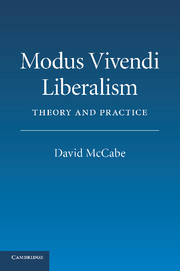2 - Well-being and value pluralism
Published online by Cambridge University Press: 06 July 2010
Summary
POLITICAL PHILOSOPHY AND THE CLAIMS OF WELL-BEING
In considering the prospects for a successful defense of liberalism I shall frequently invoke the critic's objection that the liberal state does not advance human well-being as well as some illiberal models would. This objection assumes that any model of political organization should be evaluated, in significant measure, by how well it advances human well-being. In contrast to the justificatory requirement mentioned in the previous chapter, this is not a distinctively liberal constraint on acceptable political argument. It is possible either (1) to invoke claims about well-being in advancing a political argument that rejects JR entirely or (2) to advance an argument that satisfies JR but excludes considerations of well-being (or gives them very little weight). But I believe either form of argument would be significantly problematic.
Since my aim in this book is to assess the liberal project, arguments along the lines of (1) are, strictly speaking, not germane to my overall task. Still, it's worth noting that any such argument violates a basic normative commitment of mainstream political theory, publicly endorsed by virtually all extant governments, according to which political power, since it properly serves the interests of those subject to it and so owes its authority ultimately to them, must be organized and exercised on grounds broadly justifiable to citizens.
- Type
- Chapter
- Information
- Modus Vivendi LiberalismTheory and Practice, pp. 11 - 26Publisher: Cambridge University PressPrint publication year: 2010

